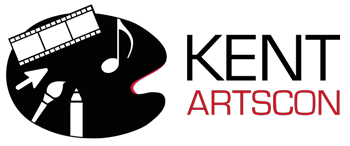This article is written by Julie Flower based on the success of her session entitled “Our Narrative Selves: Discovering New Perspectives“.

What are the stories we tell ourselves? How do they define us and the way we interact with the world? I developed this interactive and experiential workshop to explore our narratives and consider how changing them, or our relationship with them, could impact on us and those around us in positive ways. Through using exercises and techniques from improvised comedy, participants were encouraged to reflect on how the learning could apply to them personally (their personal narratives) and in their wider lives, such as at work or in education.
The group firstly used the ‘yes, and’ technique to develop fantastical ‘plans’ for a day out and then to ‘reminisce’ over a shared family story, all made up on the spot. ‘Yes, and’ is about accepting offers from others and building on them, without judgement. Participants recognised the power of ‘yes, and’ to help them find joy in working with others, releasing their imagination and helping them to be more ‘in the moment’. Other reflections included the power of feeling genuinely listened to and the positive impact that has on your emotions and on relationship-building. ‘Yes, and’ can be a powerful tool to develop active listening skills, with application in all aspects of life.

We then shared real stories from our lives and used a technique called ‘progress and colour’ to help us to consider the role of both plot and detail in the way we remember and tell stories. A partner instructed the storyteller at different points to either ‘progress’ (move forward with the plot) or ‘colour’ (add detail – describing people, the environment, emotions). Reflections included that paying attention to both aspects of storytelling can be very powerful and offer new perspectives on our narratives. There is often pressure to ‘progress’, whereas the detail of the ‘colour’ of the story is often crucial for engaging people, promoting deeper understanding and empathy, as well as discovery. Wider reflections included the potential benefits of applying the language of ‘progress’ and ‘colour’ within meetings to be clear when it’s appropriate to move on and when more exploration of the detail is needed. This could help with decision-making, creative problem-solving and communication within teams.
It was a joy to work with a group who were open and willing to try these techniques, supporting each other, finding joy in new discoveries and reflecting on their wider application to create, change and explore our narratives.
